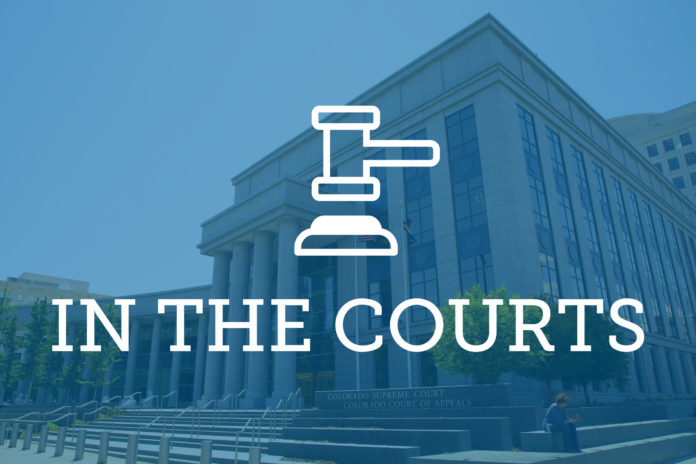

Editor’s Note: Law Week Colorado edits court opinion summaries for style and, when necessary, length.
Clayton Hood appealed his conviction of sexual assault on a child by one in a position of trust and unlawful sexual contact. He contended the district court erred when it excluded certain DNA evidence under the rape shield statute, the prosecution committed misconduct by misleading the jury and impermissibly shifting the burden of proof and his convictions should merge. The Colorado Court of Appeals concluded the district court erred when it excluded the DNA evidence, reversed Hood’s judgment of conviction and remanded the case to the district court.
In 2019, Hood moved in with his cousin, the cousin’s daughter and a few other family members. The daughter testified at trial Hood sexually assaulted her in 2020, when she was 15 years old. She testified that after the assault and before she went to school the following day, she showered and changed clothes.
The prosecution charged Hood with sexual assault on a child by one in a position of trust and unlawful sexual contact. A jury convicted Hood as charged, and he was sentenced to concurrent indeterminate sentences of eight years to life in prison, with 10 years of mandatory parole.
Hood argued the district court erred by misapplying the rape shield statute to exclude evidence DNA from someone other than him was detected on the victim and concluding the probative value of the DNA evidence was outweighed by the danger of unfair prejudice under Colorado Rule of Evidence 403. The appeals court agreed.
The same day the victim disclosed the alleged assault, she went to the hospital and was examined by a sexual assault nurse examiner. The nurse took several swabs from the victim, and the police sent the swabs to the Colorado Bureau of Investigation for DNA testing. Hood’s DNA wasn’t detected on three of the four swabs, but DNA from at least one male contributor other than Hood was detected on one of the victim’s swabs.
The prosecution filed a motion in limine to exclude evidence of the other DNA profile found on the swab under the rape shield statute. The defense counsel argued there was no rape shield issue because both side’s experts would testify about DNA transfer.
After hearing arguments at a motions hearing, the district court agreed with the prosecution. The appeals court concluded the district court abused its discretion because the evidence didn’t fall under the rape shield statute, was relevant under CRE 401 and wasn’t inadmissible under CRE 403.
The appeals court also concluded the excluded DNA was relevant to a material fact and the probative value of the evidence wasn’t substantially outweighed by the danger of unfair prejudice or misleading the jury.
The appeals court found the district court’s error wasn’t harmless for two reasons. First, the court’s ruling and the prosecution’s presentation of the evidence and argument gave the jury an incomplete and misleading view of material evidence and minimized the exculpatory value of the fact Hood’s DNA wasn’t found on the victim. Second, the facts and evidence were highly disputed, and because of that, the DNA evidence that was excluded became much more important, according to the opinion. The appeals court concluded the exclusion of DNA evidence “substantially influenced the verdict or affected the fairness of the trial proceedings” and required reversal.
The appeals court reversed Hood’s judgment of conviction and remanded the case to the district court for a new trial.
Gustavo Lopez appealed his convictions of sexually abusing his son, daughter and niece and of possessing child pornography.
Lopez argued the trial court erred when it admitted expert testimony that the son and daughter didn’t show signs of having been coached in reporting the allegations. He also argued the trial court gave the jury a coercive instruction during deliberations and improperly conducted a child competency examination during trial.
The Colorado Court of Appeals concluded the defense counsel opened the door to the interview’s testimony and rejected Lopez’s other arguments.
The appeals court affirmed the judgment.

